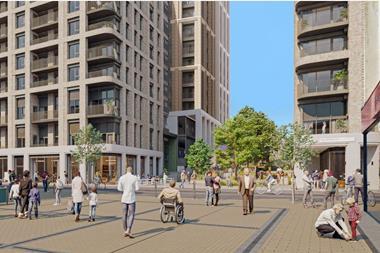In 2021, before this critical period of economic malaise, John Myers, Ben Southwood and Sam Bowman published The Housing Theory of Everything. A cost-of-living crisis later, and that hypothesis now appears very plain.

Access to safe, secure housing is in some way or another correlated with every socioeconomic indicator imaginable. Or, in the words of author TS Eliot, “home is where we start from”.
Productivity, social mobility, physical and mental health, social inequity, birth rates and mortality, innovation and opportunity are all intrinsically connected to our living conditions.
Delivering more homes and elevating existing stock to standards fit for 2023 will be driven by partnership between the public and private sector. That virtuous circle is being strengthened as institutional capital, particularly pension funds, diversify to capture the defensive returns of an increasingly sophisticated housing market. Renters’ standard of living is improving as institutions challenge industry expectations.
Central and local government could be advantaged by the ‘triple bottom line’, too. On the social housing side, housing associations, registered providers and local authorities face an uphill struggle to upgrade and retrofit residential portfolios to meet incoming legislation. Through no fault of their own, funding is the principal issue. A step change is occurring, but it is slower than anyone would like.
In the private rented sector, the historic fragmentation of the market dominated by small landlords, who often see day-to-day management as a bolt-on to their other responsibilities, stands to be recalibrated through professional, institutional landlords. Renters will directly benefit. When the relationship between landlords and renters is as polarised as it is now, rental housing professionally managed by socially responsible investors provides a market-guided solution to quality concerns, security of tenure and the ever-looming prospect of open-market disposal. It provides the stability necessary to start a family, move jobs and take the risks fundamental to enterprise.
Institutional capital, as one expression of public-private collaboration, is a transformative ingredient together with regulatory, tax and sustainability regime change in government policy that directly contributes to socioeconomic improvement.
There is a financial and moral pragmatism to this promising trend. Favourable structural drivers have paved the way for a new demand pool to emerge, with patient capital turning to UK residential for rent in light of its inflation-linked income and defensive, counter-cyclical characteristics.
The very nature of the long-term investment model means institutional investors are incentivised to create the best product possible. Satisfied renters are the underpinning of income production and high-performing portfolios. That means pushing the boundaries of customer service and operational management, as well as build quality and design for new development.
Demands on institutions to pioneer the sustainability agenda makes the creation of environmental, social and governance-focused portfolios non-negotiable. For existing stock, institutional money is perfectly poised to deliver the government’s retrofitting agenda, which could cost as much as £156bn, according to some estimates. Implementing the latest technology, materials and construction techniques to reduce emissions at the build and operational stage is central to new development. A focus on the long-term prosperity of the surrounding community is also fundamental, offering obvious social benefits.
The growing presence of institutional capital in the public sector, seen through the formation of joint ventures and strategic partnerships, illustrates that public stakeholders are more receptive to the presence of the private market. The growth of build to rent – where £4.3bn was invested in 2022 – and the arrival of single-family housing demonstrate that private investors have the UK in its sights for the long term. Society stands to benefit.
Sadie Malim is the head of special projects and legal at Moorfield Group





























No comments yet